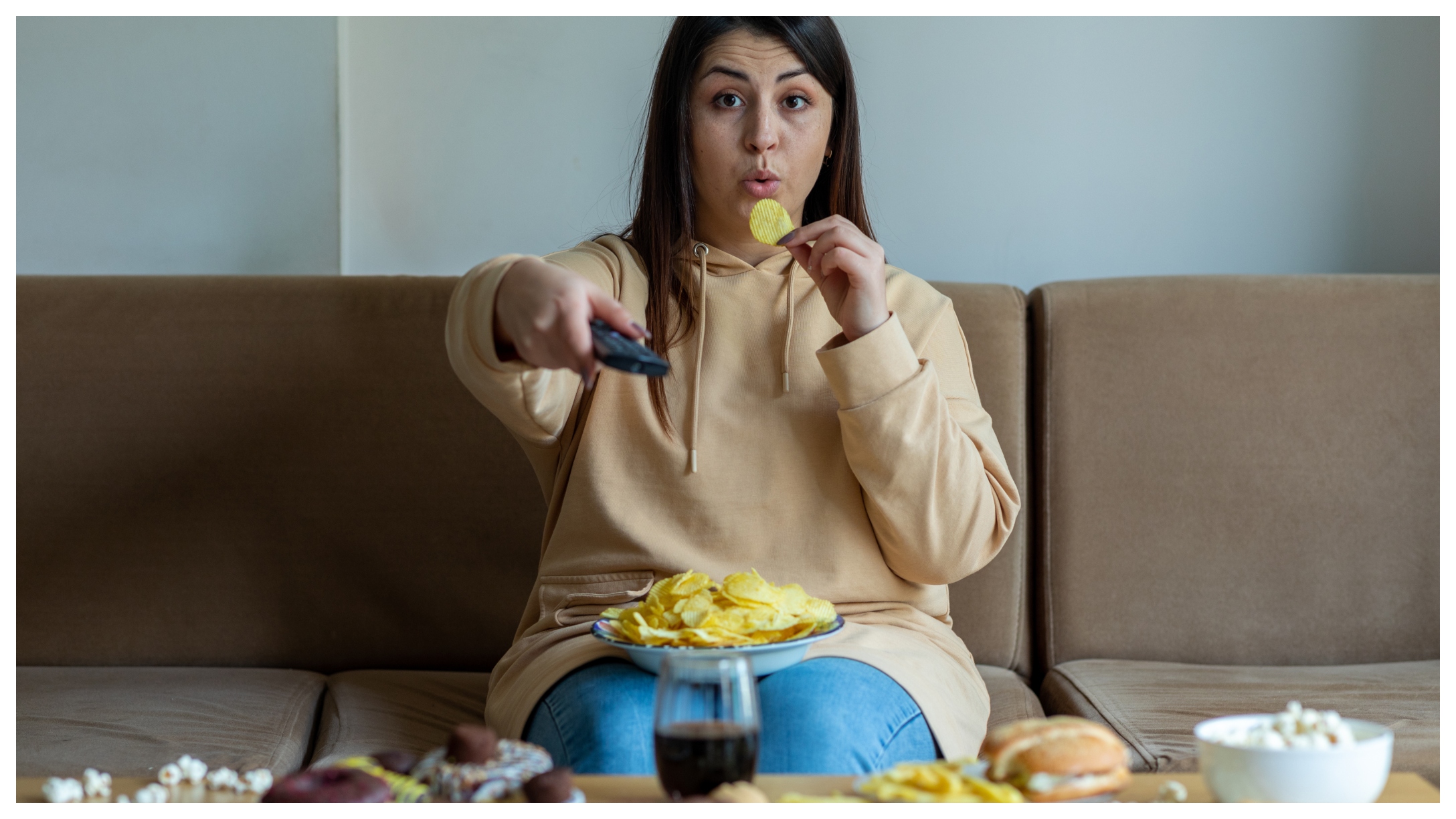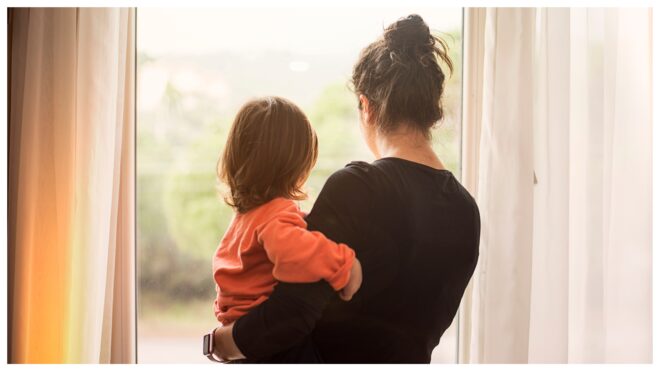
The pandemic has been unbelievably hard on just about all of us in so many ways. And it makes complete sense. We've all been doing our best to adjust to so many major shifts in our lives. Whether that has meant being less social, staying home more, or coping with how to multitask to the extreme (hello, parents with school-age children), the past two years have been a massive lesson in coping.
Truth be told, we've been managing a massive amount of stress that health experts say we'll probably be recovering from for a while. That stress really isn't good for our health. That's especially true because when we're tapped out, we tend to engage in not-so-good-for-ourselves habits. While it's possible we've picked up some good habits in the past couple of years, like going out to eat less or tuning into ourselves in different ways, chances are we've picked up some bad habits, too.
Here are six super-common pandemic habits that may be hurting our health.
1. Being More Sedentary
When you're spending less time in public because you aren't working in an office, and you're not being as social, sometimes your motivation to be presentable just goes out the window. But when you're sitting around in pajamas pants all day, it's harder to get moving.
If you've been finding yourself sitting on the couch entirely too much, it may be time to get back in touch with the earth — like putting your feet on the ground. Whether you start spending more time doing productive things around the house, taking a brisk walk, or working up a sweat on your Peloton, remember that bodies in motion stay in motion. Likewise, bodies that sit on the couch for too long … stay on the couch. That's not great for our mental health or our physical health.
2. Avoiding People
Most of us have gotten used to being less social during the pandemic. But this strange thing starts to happen when we spend too much time alone: We forget to make efforts to socialize at all. Whether it's taking a masked walk with a friend or chatting on Zoom, having some form of social interaction is vital to our mental health. It takes effort, however. These days, our social batteries all seem to be a little short on juice. But remembering to reach out can help us to feel a little better in our brain space.
3. Eating Too Much Comfort Food
Comfort food makes us feel good for a short time. But its benefits really don't go much further than that. When we're feeling a little lower, many of us have favorite meals and snacks that we turn to. Still, it's important to take notice if we're doing it too much.
Mac and cheese, ice cream, and all of those really delicious foods we love are short-term fixes for our collective lack of optimism. Preparing healthy meals takes a little motivation and a little more effort, but it does wonders for our energy levels, and possibly our overall outlook. Because when you eat garbage all day, that's pretty much what you end up feeling like.
4. Having Wayyyy Too Much Screen Time
Raise your hand if you've been glued to your phone for the past two years straight? Oh, everyone? Yeah, that's what I thought. This pandemic has pretty much been the perfect storm when it comes to screen time. Screens make us feel more connected to the outside world when we're feeling isolated. They help us stay in the know about what's going on. Plus, when we're bored, it becomes a really ingrained habit to keep checking our phones.
Still, there is so much research about how screens don't actually make us feel happy. It's a short-term fix, just like a cupcake. It can also be information overload. Screens are incredibly useful, yes. But screen breaks are absolutely needed. Now more than ever.
5. Pretending We're Fine
At the start of this pandemic, people were vocal about their struggles. But now that it's been going on for nearly two years, it seems like the vibe is more, "Suck it up. We're all in the same boat." But that mentality is not super healthy, because we all still need outlets.
Pretending we're OK when we're struggling only makes us struggle harder! So, whether you talk to a cherished friend or a therapist, getting honest about where you are and how you're handling what's going on around you is important.
6. Sip, Sip, Sipping Our Way Through
Oh wine. Beer. Margaritas (yes, even in the winter). Booze is the thing that seems like it's always there for us. If you're a person who drinks alcohol, chances are you've been drinking more during the global health crisis.
This habit feels like excellent stress relief. The only problem is that the opposite is true. Alcohol disrupts our sleep. It makes us less focused. And it ends up making us more anxious the next day.
If you're sipping a little too much, it might be time to tune in and scale it back.







